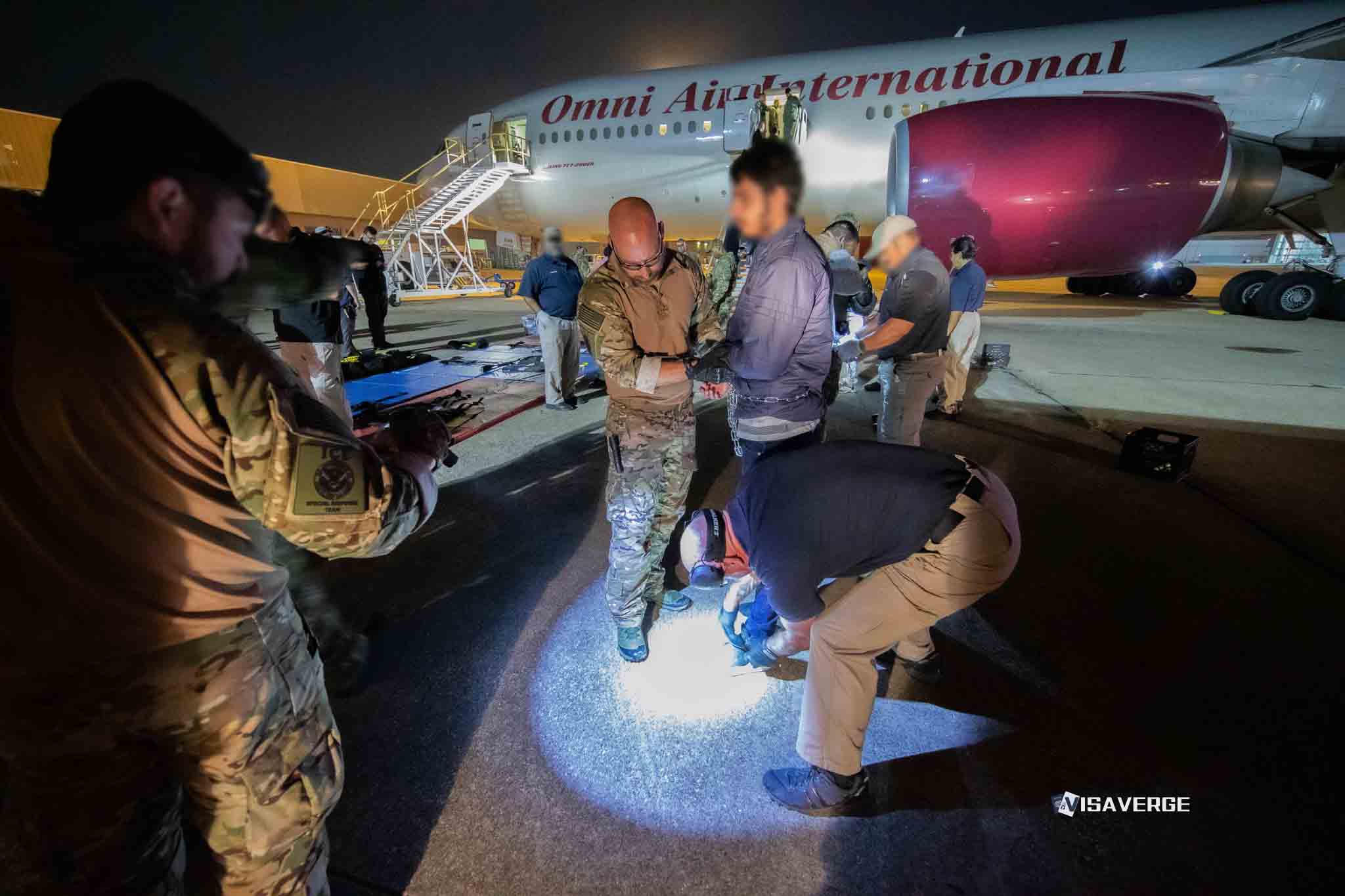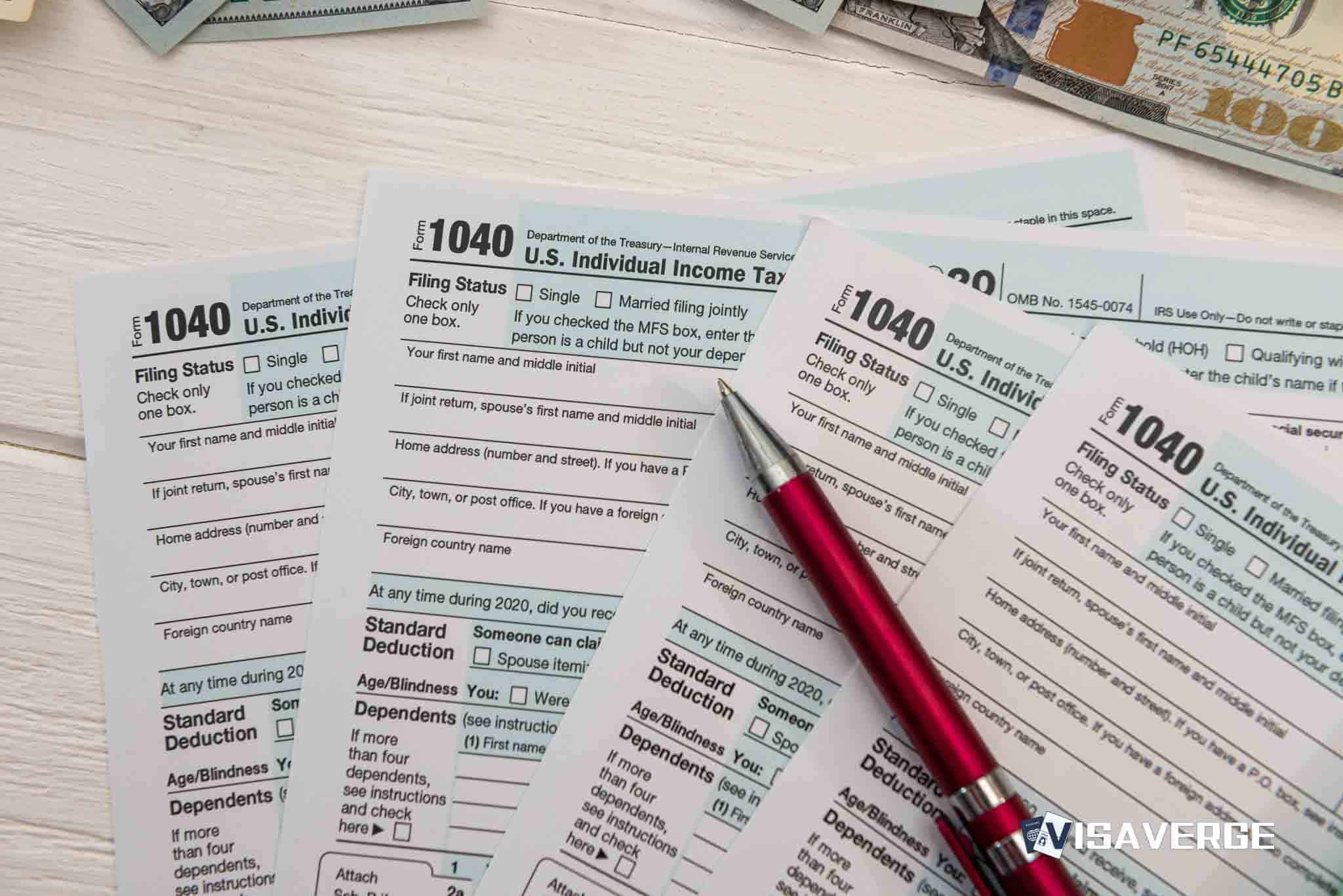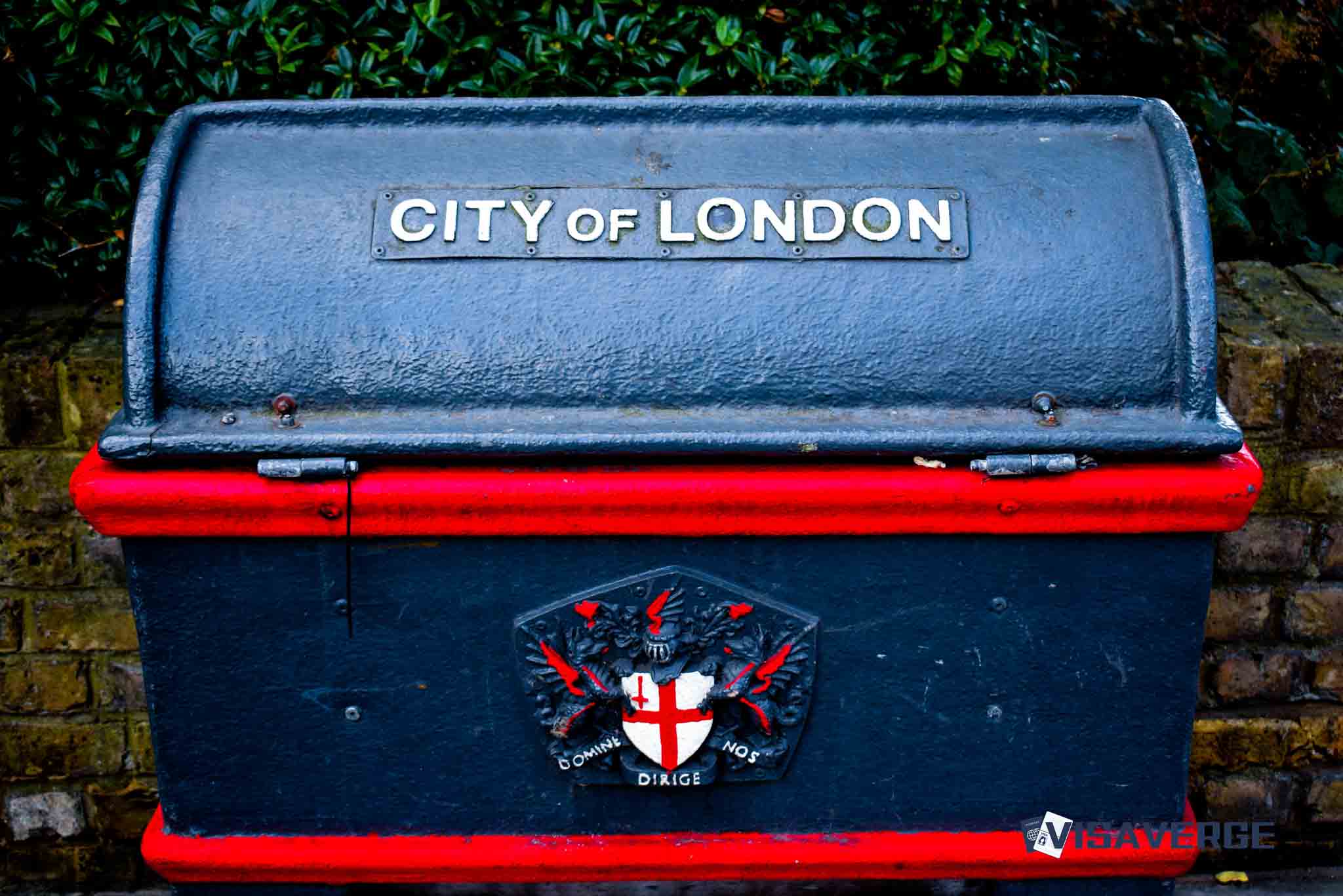Key Takeaways
• Moshannon Processing Center accounts for a high share of 9,434 solitary confinement cases reported by ICE since April 2024.
• Average solitary confinement at ICE facilities is 27 days, exceeding the UN’s 15-day limit and raising torture concerns.
• Civil rights complaints accuse Moshannon of denying language access and medical care, retaliating with solitary confinement.
Pennsylvania’s Moshannon Processing Center has come under intense scrutiny for its high use of solitary confinement, raising serious questions about immigrant safety and the broader practices of U.S. Immigration and Customs Enforcement (ICE). Recent data and civil rights complaints reveal a troubling pattern at this facility, which stands out among more than 100 ICE detention centers nationwide. As the United States 🇺🇸 continues to expand its immigration detention system, the situation at Moshannon highlights deep concerns about human rights, legal compliance, and the treatment of vulnerable populations.
Moshannon Processing Center: A Closer Look

The Moshannon Processing Center, located in Pennsylvania, is the state’s largest immigrant detention facility. Once operated as a Bureau of Prisons site, it was converted to an ICE detention center and is now managed by the private company GEO Group. Since April 2024, ICE has reported a total of 9,434 solitary confinement placements across its facilities, with Moshannon accounting for a disproportionately high number of these cases.
As of June 1, 2025, Moshannon is under investigation for practices that many advocates and legal experts say endanger the safety and well-being of immigrants held there. The facility has repeatedly failed to meet the standards required by the U.S. Constitution and ICE’s own regulations, especially when it comes to the use of solitary confinement and access to basic services.
What Is Solitary Confinement and Why Is It Controversial?
Solitary confinement means keeping a person alone in a small cell for 22 to 24 hours a day, with little or no contact with others. This practice is used as a punishment or to separate people for safety reasons. However, many health experts and human rights groups warn that solitary confinement can cause serious mental and physical harm, especially when used for long periods.
The United Nations has set a limit of 15 days for solitary confinement, saying anything longer can be considered torture. Yet, at ICE facilities like Moshannon, the average stay in solitary is 27 days—almost double the UN limit. Some cases have lasted for months or even over a year.
Patterns of Abuse and Oversight Failures
Civil Rights Complaints and Government Investigations
On July 10, 2024, a civil rights complaint was filed with the Department of Homeland Security (DHS), describing how ICE and GEO staff at Moshannon repeatedly denied language access and medical care to detainees. Instead of fixing these problems, the complaint says the facility used solitary confinement as a form of retaliation against those who spoke up.
In June 2023, the DHS Office of Civil Rights and Civil Liberties (CRCL) visited Moshannon and made 23 recommendations to improve conditions. ICE accepted only nine of these suggestions and rejected the rest, raising concerns about the agency’s willingness to address serious problems.
Broader Trends in ICE Detention
The use of solitary confinement is not limited to Moshannon. Across the ICE detention system, there has been a 50% increase in the use of solitary for people considered “vulnerable and special populations” between September 2023 and March 2024. This group includes:
- People who identify as LGBTI
- Those with serious mental or medical illnesses
- Individuals on hunger strikes
- People on suicide watch
A report by Physicians for Human Rights found over 14,000 cases of solitary confinement in ICE facilities from 2018 to 2023. More than 680 cases lasted at least three months, and 42 cases lasted over a year. In at least two cases, people were held in solitary for over 300 consecutive days, which ICE failed to report.
Political and Administrative Context
Policy Shifts Under President Trump
The current administration under President Trump has made it clear that it wants to increase detentions and deportations. The stated goal is to deport one million people in a single year. This policy has led to a rise in the number of people held in ICE custody, with 39,703 people in detention as of January 22, 2025, up from 39,062 the previous month.
This push for more detentions appears to be influencing how facilities operate. For example, after President Trump won the November election, the number of people held in solitary at the Batavia facility in Western New York jumped from 27-40 people per month to 69 in December and 63 in January.
The Role of Private Prison Companies
Private companies play a major role in the immigration detention system. CoreCivic, one of the largest private prison operators in the United States 🇺🇸, runs 42 facilities with about 62,000 beds as of September 30, 2024. The company has recently reopened closed facilities and expanded contracts to provide ICE with even more space.
The Senate Judiciary Committee has asked CoreCivic for detailed information about its contracts with ICE, including:
- All active contracts
- Guaranteed bed counts
- Facility names and locations
- Average daily populations
- Detention capacities
- Instances of overcapacity
This increased reliance on private companies raises questions about oversight, accountability, and the profit motives behind detention practices.
Legal and Human Rights Concerns
Fourth Amendment and Due Process Issues
The American Civil Liberties Union (ACLU) of Pennsylvania has warned county officials about the risks of cooperating with ICE. In a letter sent to every county commissioner and solicitor, the ACLU pointed out that ICE detainers—requests to hold people for ICE—are not reviewed by judges or neutral decision makers. This creates serious Fourth Amendment concerns, which protect people from unreasonable searches and seizures.
The ACLU also noted that ICE often issues detainers based on faulty information from unreliable databases. A federal court has described these databases as “inaccurate, incomplete, and error-filled.” Counties that honor these detainers could face legal liability under federal law, and such detainers may be illegal under Pennsylvania law.
Reports of Abuse and Mistreatment
There have been disturbing reports of abuse at ICE facilities. At the Batavia facility in New York, a detainee named Sidibe was allegedly beaten, kicked, handcuffed, and dragged by ICE guards. According to a civil rights complaint, guards broke several of his fingers and denied him medical care for a month.
Sidibe’s attorney, Sarah Decker, described the facility as “inhumane” and said it cannot operate in a way that respects civil and human rights.
Statistical Overview: Solitary Confinement in ICE Facilities
The numbers paint a stark picture:
- Over 14,000 cases of solitary confinement in ICE facilities from 2018 to 2023
- Average stay: 27 days (UN limit is 15 days)
- More than 680 cases lasted at least three months
- 42 cases lasted over a year
- At least two people held in solitary for over 300 days, not reported by ICE
These figures suggest that solitary confinement is not a rare or last-resort measure, but a common practice in ICE detention centers like Moshannon.
ICE’s Official Response
ICE has defended its use of solitary confinement, calling it a necessary disciplinary tool. An ICE spokesperson stated:
“The agency continuously reviews and enhances civil detention operations to ensure aliens are treated humanely, protected from harm, provided appropriate medical and mental health care, and receive the rights and protections to which they are entitled.”
ICE also claims that its staff are held to high standards and that any reports of misconduct are thoroughly investigated.
However, advocacy groups and independent investigations continue to find evidence of serious problems, including the overuse of solitary confinement and failures to provide adequate care.
Implications for Stakeholders
For Immigrants and Their Families
The high use of solitary confinement at Moshannon Processing Center and other ICE facilities has a direct and often devastating impact on immigrants and their families. Many detainees suffer from mental health problems, trauma, and physical harm as a result of being isolated for long periods. Families are often left in the dark about their loved ones’ conditions and may struggle to get information or legal help.
For Local Governments and Communities
Counties that cooperate with ICE by honoring detainers or hosting detention facilities face legal and financial risks. They may be held liable for violations of constitutional rights and could be drawn into costly lawsuits. Communities also grapple with the social and economic effects of large detention centers, including concerns about public safety, employment, and local resources.
For Private Prison Companies
Companies like CoreCivic and GEO Group profit from contracts with ICE, but they also face growing scrutiny from lawmakers, advocacy groups, and the public. The Senate Judiciary Committee’s investigation into CoreCivic’s operations signals a possible shift toward greater oversight and accountability.
For Policymakers and Advocates
The situation at Moshannon and other ICE facilities has sparked calls for reform at the federal, state, and local levels. Lawmakers are considering new rules to limit the use of solitary confinement, improve oversight of private contractors, and protect the rights of detainees. Advocacy organizations continue to document abuses and push for changes in detention practices.
What Can Be Done? Practical Steps and Resources
If you or someone you know is affected by ICE detention or solitary confinement, there are steps you can take:
- Know your rights: Detainees have the right to medical care, legal representation, and protection from abuse. The ICE Detainee Locator can help families find loved ones in custody.
- Seek legal help: Organizations like the ACLU and local immigrant rights groups can provide legal advice and support.
- Report abuses: Complaints about mistreatment can be filed with the Department of Homeland Security’s Office for Civil Rights and Civil Liberties.
- Stay informed: Follow updates from trusted sources, including government reports and independent investigations.
For official information about ICE detention standards and oversight, visit the U.S. Department of Homeland Security’s ICE Detention Standards page.
Looking Ahead: The Future of ICE Detention and Solitary Confinement
With the Trump administration’s focus on increasing deportations and expanding detention, the use of solitary confinement in ICE facilities like Moshannon Processing Center is likely to remain a pressing issue. The growth of private detention centers and the rising number of people in custody suggest that these problems may get worse before they get better.
However, ongoing investigations by Congress, legal challenges by advocacy groups, and growing public awareness offer hope for change. As reported by VisaVerge.com, the spotlight on Moshannon and similar facilities has led to renewed calls for transparency, accountability, and respect for human rights in the immigration system.
Conclusion: A System in Need of Reform
The high use of solitary confinement at Moshannon Processing Center is not just a local problem—it reflects broader issues in the U.S. immigration detention system. The data shows a pattern of overuse, inadequate oversight, and serious harm to vulnerable people. Legal and human rights concerns continue to mount, and the involvement of private prison companies adds another layer of complexity.
For immigrants, families, local communities, and policymakers, the situation demands urgent attention and action. By staying informed, seeking help, and pushing for reform, stakeholders can work toward a system that respects the dignity and rights of all people.
For more information on ICE detention and your rights, visit the official ICE website.
Learn Today
Solitary Confinement → A practice isolating detainees alone in a cell for 22-24 hours daily, causing significant mental and physical harm.
ICE Detainer → A request by ICE to hold a detainee beyond local custody, often without judicial review or due process.
Fourth Amendment → A constitutional protection against unreasonable searches, seizures, and detentions without proper legal authority.
Private Prison Companies → For-profit firms like GEO Group managing detention centers under government contracts, raising accountability concerns.
DHS Office of Civil Rights and Civil Liberties → A division investigating civil rights violations within Department of Homeland Security facilities and programs.
This Article in a Nutshell
Moshannon Processing Center in Pennsylvania faces investigation for overusing solitary confinement, affecting immigrant safety and rights amid growing ICE detention concerns nationwide.
— By VisaVerge.com













